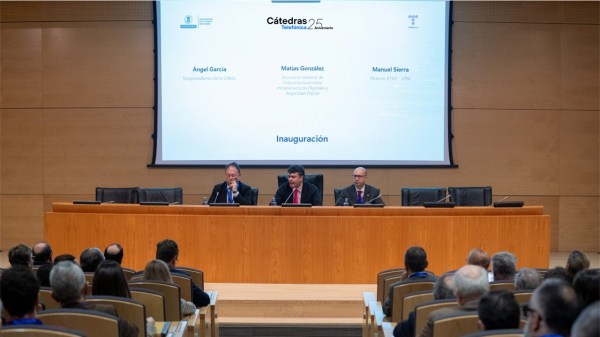It takes imagination to envisage future technologies plugged into our everyday life. Only ten years ago, smart watches and plug-in keyboards for tablets were considered cutting-edge trends. And while we mainly experience such innovations through hardware and software, they can only become reality through improved connectivity.
For our standard of life to remain as high as we are used to, massive investments in telecommunications infrastructure are needed. Outdated payment models currently undermine the ability of telecom operators to fund, single-handedly, such investments. Rebalancing the market will be key to our future quality of life, prosperity, and competitiveness.
Being able to deploy future technologies will decide Europe’s prosperity
In the near future, it might be an everyday activity to send our avatar shopping for a coat in a virtual shopping mall. Or to have them attend a class in a school that no longer consists of brick-and-mortar walls. Wearables, skin sensors and in-body sensors will monitor our health allowing us to respond in real-time and prevent diseases, taking pressure off national health systems. This might go as far as to take digital twins to a level where they represent a digital body double helping us to predict future health.
What sounds like it has been taken from a science fiction novel could soon be our reality. The Covid pandemic has proven how easily we can adapt to new technologies and use them in our everyday lives. After a first surge of astonishment, we would consider it normal that quantum computers will be able to factor in the many variables in the complex weather system that right now makes weather forecasts seem like fortune-telling. We might know when and how much to irrigate fields, when to harvest, or when not to travel due to adverse conditions.
European Union set ambitious goals for improved connectivity
There is one if: our telecommunication infrastructure must be able to support the relentless amount of data and increasingly demanding service quality levels that these technologies require. Telecom operators across Europe will need to step up their already significant investments to keep pace. The truth is that Europe is already falling behind in digitalization; America, China and Asia are making huge strides in the availability of next-generation connectivity and digitalization across the economy. We are not only talking about nice-to-have bandwidth for ever more video streaming or gaming; advanced connectivity is key when it comes to future-proofing our economy.
Telco networks will determine whether European enterprises and citizens will remain competitive or not: Sandvine’s Global Internet Phenomena Report in 2023 highlights that the World Economic Forum predicts democratization of computing with high-speed Internet worldwide can unleash trillions of dollars in economic gains and tens of millions of jobs. Networks will be the lifeblood of those gains, but it will only happen, or will happen sooner, with the delivery of massive network investment.
In the past decade, data traffic has increased by around 30% each year while telecom operators’ revenue has stagnated. Telcos are struggling to monetise data but must continue making massive investments in UBB networks. The sector’s inability to make viable returns can put longer term network development at risk and be detrimental to the success of the EU Digital Decade targets. It is important that action is taken now.
We remain committed to meeting the ambitious targets in the Digital Compass: By 2030, all European households should have access to a Gigabit network and 5G coverage. Telefónica and other European telecom operators are investing significantly in our digital infrastructure to meet these 2030 targets by deploying and upgrading fixed infrastructure to gigabit speeds, accelerating 5G deployment to close the coverage gaps and to include 10,000 low-latency edge nodes.
To close the investment gap, Large Traffic Originators must shoulder part of the cost
Despite telecom operators having invested over €500 billion during the last ten years, the European Commission identified a significant investment gap of €65 billion per year which amounted to €250 billion only to meet the European Gigabit Society interim targets by 2025, recognising that the investments need to reach the 2030 Digital Decade targets will need to be significantly higher.
This gap cannot be closed by telecom operators alone as outdated payment models stemming from the early days of the Internet in the mid-1990s allow for the value creation arising from new technologies to flow into the pockets of just a very few players. The bargaining power of Large Traffic Originators (LTOs) has expanded in recent years, preventing a balanced market negotiation. This has resulted in a full decoupling between the traffic conveyed and the revenues for telecom operators, given LTOs do not make a fair contribution to the costs of the traffic conveyed through national networks to deliver their services.
In anutshell, telecom operators have been making multibillion-euro investments to build networks to support an ever-increasing growth of data traffic and high-quality levels. However, this is not a sustainable situation, particularly without any compensation from the Big Tech companies which are responsible for generating almost half of the current traffic by providing services over such networks.
Our proposal to balance the digital market
The solution that we are proposing is rather simple: The EU must ensure LTOs have an obligation to sit down, negotiate and reach fair agreements on a fair and proportionate price for the services provided. Such legislation will enable network operators to further invest in digital infrastructure to help achieve the EU’s digital targets and will incentivise LTOs to deliver traffic in a more efficient way for the benefit of the ecosystem.
The contribution from LTOs to the continuous investments in the networks will allow a faster roll-out of top-quality networks without putting all the burden on consumers. Currently, they are the only contributors to shoulder the investment needs for the transition to 5G and fibre. To meet the ambitious but highly necessary connectivity goals, it is high time for the EU to set the course so that the investment gap can be closed to the benefit of European citizens. This will be the only way to steer European citizens and businesses away from the risk of living in a second-class digital society in a near future.







